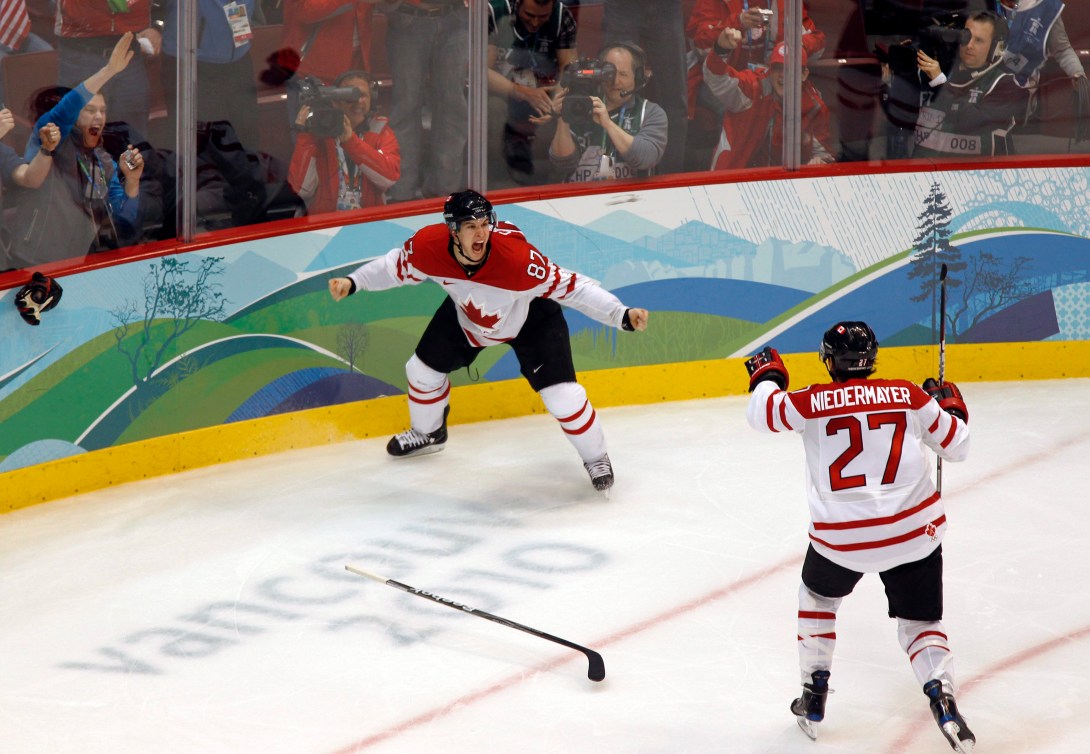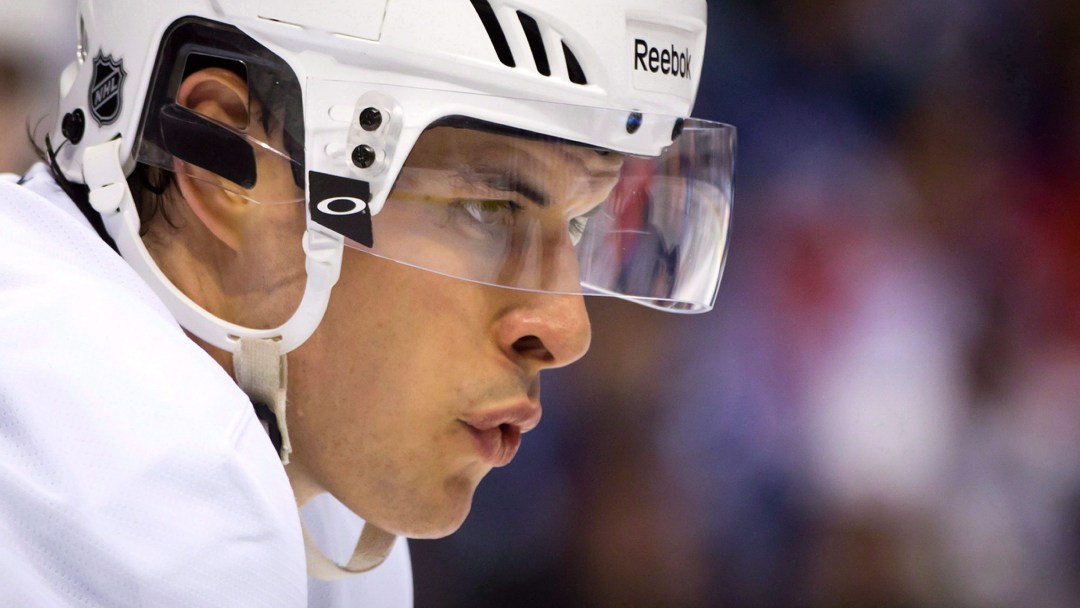What you need to know about Team Canada at the 4 Nations Face-Off
At the 2024 NHL All-Star Game, representatives of the NHL and the NHL Players Association made an announcement of intense interest to Team Canada fans—that NHL players would return to international best-on-best tournament play, including the 2026 and 2030 Olympic Winter Games.
NHL players were unable to play at the 2018 and 2022 Winter Games, a factor that greatly altered the field of competition of the Olympic men’s hockey tournament.
In addition to releasing players to represent their countries at the upcoming Olympic Games, the NHL announced plans for its own international tournament—the 4 Nations Face-Off—featuring the hockey powerhouse nations of Canada, Sweden, Finland, and the USA. The tournament will be held in place of the NHL’s annual All-Star Game this year, and will take place February 12-20, 2025 in Montreal and Boston.
Due to the absence of NHL players from the last two Olympic cycles, the majority of players in the 4 Nations Face-Off do not have Olympic experience (although many have been able to don a Team Canada jersey for the IIHF World Junior Championship and/or IIHF World Championship). As such, the 4 Nations Face-Off is set to offer an exciting potential preview of national rosters for Milano Cortina 2026, and a chance for players to gel with potential Olympic teammates.
So, here’s everything you need to know about the 4 Nations Face-Off.
Who can play at the 4 Nations Face-Off?
The tournament will feature NHL players from Canada, Sweden, Finland, and the USA. Players must be under an NHL contract for the 2024-25 season and on an NHL roster as of December 2, 2024 to be eligible.
At the time of the tournament’s announcement, all of these nations were ranked in the IIHF’s top six for men’s hockey, with Canada in first, Finland in second, the USA in fourth and Sweden in sixth. Russia (ranked third at the time) was excluded from the tournament as the country was banned by the IIHF as a sanction against the war in Ukraine. Germany, ranked fifth at the time of the announcement, did not have enough active NHL players to field a roster. Czechia, eighth in the IIHF rankings at the time, did have enough NHL players to field a roster, but was not included.
The current world rankings (as of May 2024) rank Canada in first, followed by Russia, Finland, Czechia, Switzerland, USA, and then Sweden, making Czechia’s absence from the 4 Nations perhaps more notable.
With the absence of Czechia and Russia, there may be some hesitation to call the tournament a true best-on-best test, however, it is the first international tournament that will feature top NHL talent since the World Cup of Hockey in 2016.
Who is on Team Canada for the 4 Nations Face-Off?
Six players were announced as the headliners of Team Canada in June 2024 to create buzz around the tournament. Those players included Sidney Crosby, Connor McDavid, Nathan MacKinnon, Cale Makar, Brayden Point, and Brad Marchand. The rest of the 23-man roster was announced in December 2024 (see below for full roster).
READ: Team Canada roster for 4 Nations Face-Off offers potential preview for 2026 Olympics
Seventeen of the players have represented Canada at the IIHF World Junior Championship and 19 have donned the maple leaf for the IIHF World Championship. Members of the roster have won a combined 20 Stanley Cups, 10 gold medals at the world juniors, and nine gold medals at the world championships.
Hockey Canada has amalgamated a fun stats round up of Team Canada by the numbers.
What is the significance of the 4 Nations Face-Off for the Olympic Games?
The tournament is expected to offer a preliminary glance at what may be similar rosters for the top teams headed to Milano Cortina 2026—or it could show those teams where they might like to make changes.
Team Canada’s 4 Nations Face-Off coach, Jon Cooper, has also been tapped to lead the Canadian men’s Olympic team, so the leadership of Team Canada will be consistent across both tournaments. Cooper is the longest-tenured active head coach in the NHL, and currently coaches the Tampa Bay Lightning.
Despite the absence of NHL players from the last two Olympic cycles, Team Canada does have veteran Olympic experience to rely on, most notably double Olympic gold medallist Sidney Crosby. The now-37-year-old scored the famous “golden goal” to give Canada the victory at home during Vancouver 2010, and then went on to captain Team Canada to gold at Sochi 2014. Alex Pietrangelo, 34, is the other veteran Olympian on the 4 Nations squad, also playing for Team Canada at Sochi 2014.

Canada is the most successful country in men’s Olympic ice hockey with 16 medals, including nine gold. At the two recent Olympic Games without NHL players, Canada still managed to snag a bronze medal at PyeongChang 2018, but placed sixth at Beijing 2022.
Team Canada’s 4 Nations rivals are also short on Olympic veterans. Team USA will feature only one Olympian. Counter to Team Canada’s situation, the only American Olympian on the roster is their youngest player, 22-year-old Brock Faber, who played at Beijing 2022 before entering the NHL.
Finland won gold at Beijing 2022—but no members of that Olympic roster currently play in the NHL. The Swedish roster features three Olympians: defensemen Rasmus Dahlin (PyeongChang 2018, at age 17, before entering NHL) and Erik Karlsson (Sochi 2014), as well as forward Gustav Nyquist (Sochi 2014).
Team Canada may be particularly eager to get a sense of Team Sweden at the 4 Nations Face-Off, as the two countries are currently slotted to play in Group A for the preliminary stage of the Olympic tournament, alongside Switzerland and Italy. Group B is set to feature Finland, Germany, Czechia, and Denmark, while Group C currently includes Russia, Slovakia, Latvia, and the United States. The composition of the groups would change, however, if Russia is not permitted to compete at Milano Cortina 2026 and their spot in the tournament is taken by France.
What is the tournament structure of the 4 Nations Face-Off?
The tournament will start with a round robin, with each team playing three games. Those will lead to a one-game final for the top two teams. During the round robin stage, following a tie at regulation, teams will play 3-on-3 sudden death for 10 minutes, followed by a three-round shootout, if necessary. During the final, a tie after regulation time will be followed by 5-on-5 sudden death in 20-minute periods until a goal is scored.
How do I watch the 4 Nations Face-off?
Games will be available in Canada on Sportsnet. Tickets are available on nhl.com.
Team Canada 4 Nations Face-Off Roster:
Forwards
Sam Bennett
Anthony Cirelli
Sidney Crosby
Brandon Hagel
Seth Jarvis
Travis Konecny
Nathan MacKinnon
Brad Marchand
Mitch Marner
Connor McDavid
Brayden Point
Sam Reinhart
Mark Stone
Defense
Cale Makar
Josh Morrissey
Colton Parayko
Alex Pietrangelo
Travis Sanheim
Shea Theodore
Devon Toews
Goaltenders
Jordan Binnington
Adin Hill
Sam Montembeault


